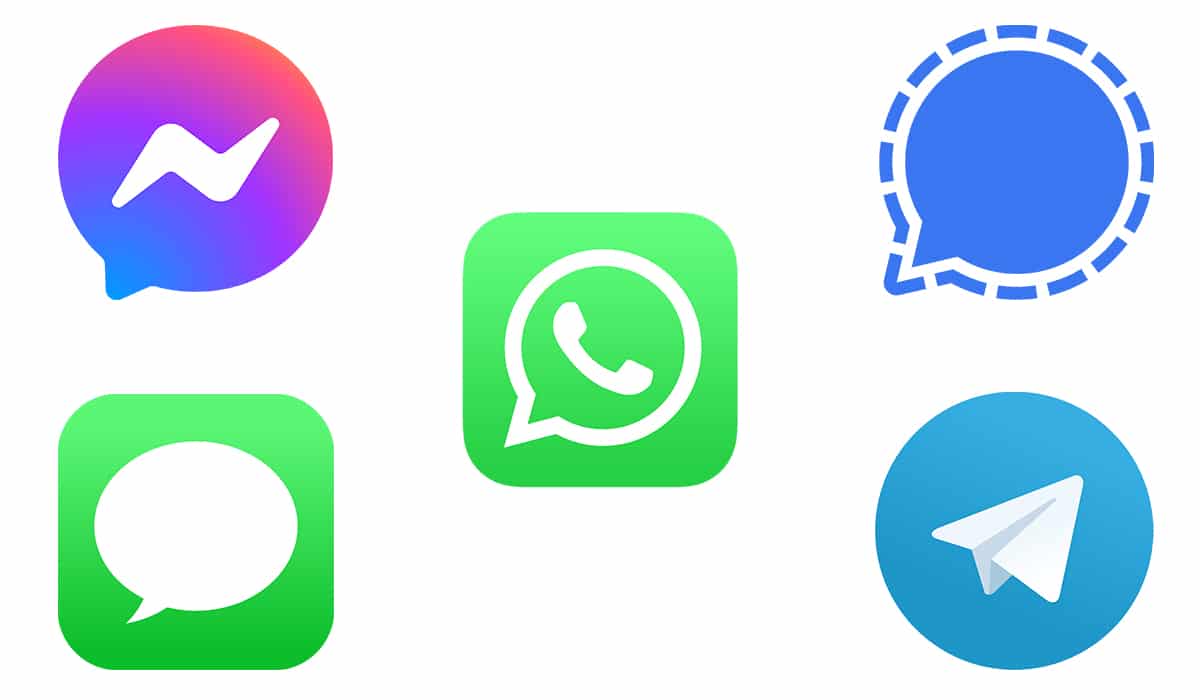
WhatsApp became the first messaging application available on all platforms, but it was not the first. BlackBerry Messenger was the first messaging application, an application was only available in the Canadian company's ecosystem, although it also reached other platforms with the rise of WhatsApp, but it was too late, since it offered nothing new.
Over the years, more messaging applications such as Line, Telegram, Viber, WeChat and Signal mainly. Of all these, only Telegram has managed to stay in the market And in January 2021, it already has more than 500 million users.
Line being a widely used application especially in Japan (where it was born), while Viber is widely used in Arab countries and WeChat in China mainly, because there are not many more options that the Chinese government allows.

Telegram has managed to reach the whole world and maintain its position by continually adding new features, features that for privacy and data collection reasons will never be available on WhatsApp.
Here we show you which are the main differences between mobile messaging applications and what data does each of them collect to know which is the application that best suits your preferences and needs.
WhatsApp vs Telegram vs Signal vs Messenger vs Apple Messages
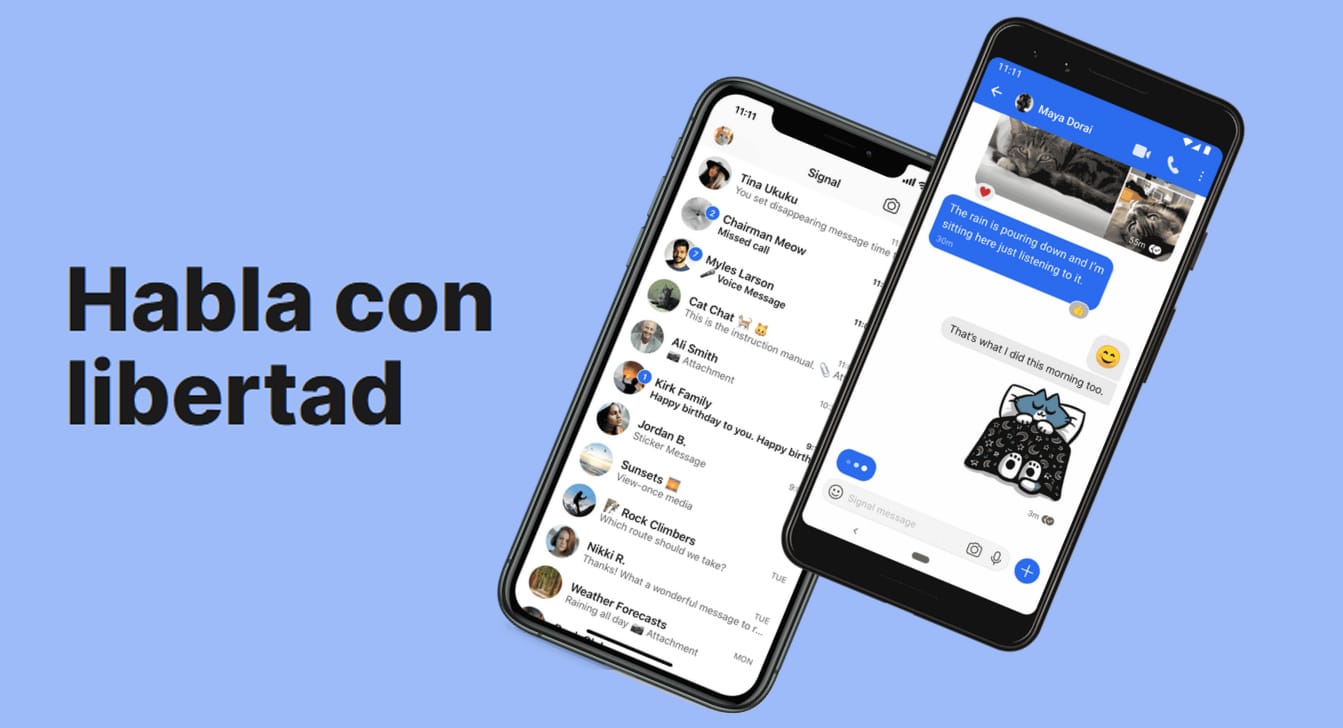
Message types
| Telegram | Signal | Facebook Messenger |
Messages Apple Lossless Audio CODEC (ALAC), |
||
|---|---|---|---|---|---|
| Group messages | Yes | Yes | Yes | Yes | Yes |
| Voice calls | Yes | Yes | Yes | Yes | No (Yes via FaceTime) |
| Video calls | Yes | Yes | Yes | Yes | No (Yes via FaceTime) |
| Group video calls | Yes (up to 50 with Messenger) | No | Yes (up to 8 parties) | Yes (up to 50 parties) | No (Yes via FaceTime) |
| Voice messages | Yes | Yes | Yes | Yes | Yes |
| Video messages | No | Yes | No | No | Yes |
| Temporary messages | Yes | Yes (in secret chats) | Yes | No | No |
As we can see in the table above, Telegram is the only application next to Apple Messages (it offers it through FaceTime) that does not allow group video calls, but individually. Telegram plans to add this functionality in 2021. Both applications allow us to send video messages, without having to use FaceTime in the case of the iPhone.

Data we can share
| Telegram | Signal | Facebook Messenger |
Messages Apple Lossless Audio CODEC (ALAC), |
||
|---|---|---|---|---|---|
| Pictures | Yes | Yes | Yes | Yes | Yes |
| Videos | Yes | Yes | Yes | Yes | Yes |
| GIFs | Yes | Yes | Yes | Yes | Yes |
| Stickers | Yes | Yes | Yes | Yes | Yes |
| Location | Yes | Yes | Yes | Yes | Yes |
| Contacts | Yes | Yes | Yes | Yes | Yes |
| Archives | Yes (100MB limit) | Yes (up to 2GB) | Yes | Yes | No |
| Stickers | Yes | Yes (animated) | Si | Si | Yes |
Telegram not only allows us to share any type of file, not only images and videos, but also offers us a maximum limit of 2GB per file, for the sad 100 MB that WhatsApp offers us.
Security
| Telegram | Signal | Facebook Messenger |
Messages Apple Lossless Audio CODEC (ALAC), |
||
|---|---|---|---|---|---|
| End-to-end encryption | Yes | Only in secret chats | Yes | Yes | Yes |
| Access blocking | Yes | Yes | Yes | Yes | No (via device) |
| Record lock | No | Yes | Yes | No | Yes |
| Lock screenshots | No | Yes | Yes | No | No |
Telegram became very popular from its birth thanks to the fact that it is a cloud of all our data, which allows us to use this application from any device conversing conversations, something that WhatsApp, Signal and Facebook Messenger do not offer, but Apple Messages.
This is because the encryption used in Telegram it's not end to endHowever, all content is encrypted and its keys are not located on the same servers where the data is stored.
Another of the benefits offered by both Telegram and Signal is found in the possibility of preventing our recipients take screenshots of conversations that we keep with them, so as not to leave evidence.
All applications allow us to establish a locking system to prevent anyone who has access to our smartphone when it is unlocked from accessing the applications. In the case of Apple Messages, the protection is only found if the terminal is locked.
What data does each user company store

When something is free, the product is us. This is one of the most popular sayings in the era in which we find ourselves, where most internet services are completely free.
What is this? User data allows large companies to offer personalized campaigns based on user searches and tastes. The two big advertising companies today are Google and Facebook.
Amazon, although not engaged in the advertising business, also collects a large amount of data from its users, which allows you to make personalized offers to your customers, analyze market trends, know what people need ... data that you also use to create new products.
The different privacy scandals that have surrounded Facebook in recent years seem to have been revulsive that many users needed to start taking seriously the treatment that large companies do with your data.
The more data an application is able to collect, best advertising campaigns you can offer to your customers.
Example of how they use our data
If these companies have data on our location, our age, our marital status and our searches, it analyzes all the data and filters it so that a client who organizes wedding receptions can order a advertising campaign limited to a city and even age bracket among people who have previously made a search with the word wedding.
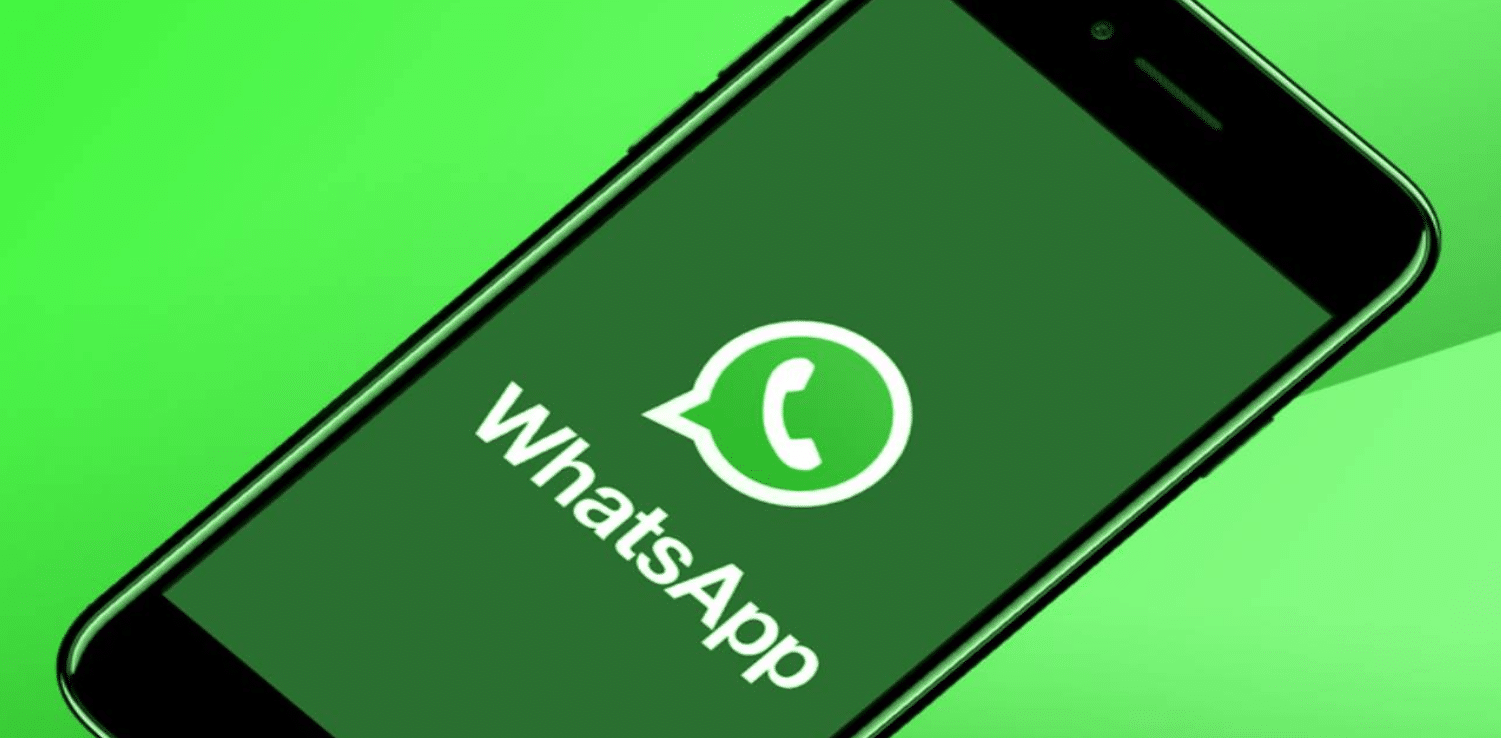
What these companies cannot do is target ads solely to women or men, to people with a concrete skin color... because the law prohibits it for being discriminatory, although until recently Facebook did offer that option, an option that Google has never offered (it must be said).
Data that Signal collects
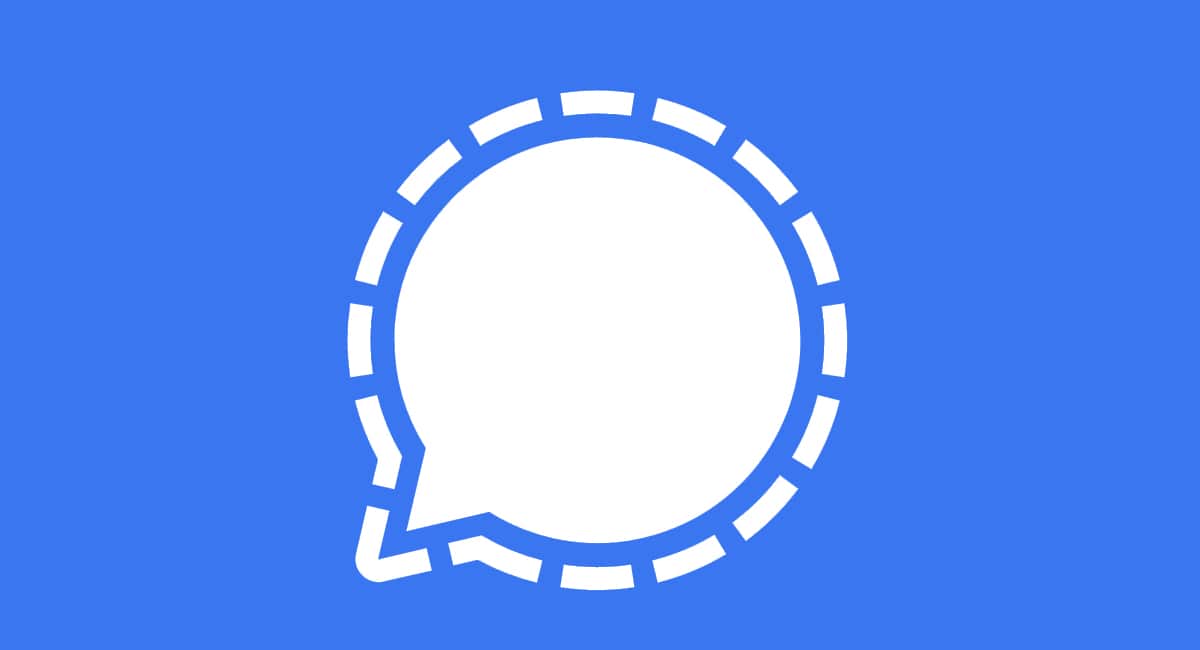
The only information that Signal collects is the phone number, number to which the account is associated.

Data collected by Apple Messages
Through the Messages application, Apple does not collect any of the data that can be shared, beyond what it can collect anonymously via iOS.
Data collected by Telegram
The data that Telegram collects are the telephone number, the username (this platform can be used without a phone number partner), contacts, and account name.
Data collected by WhatsApp
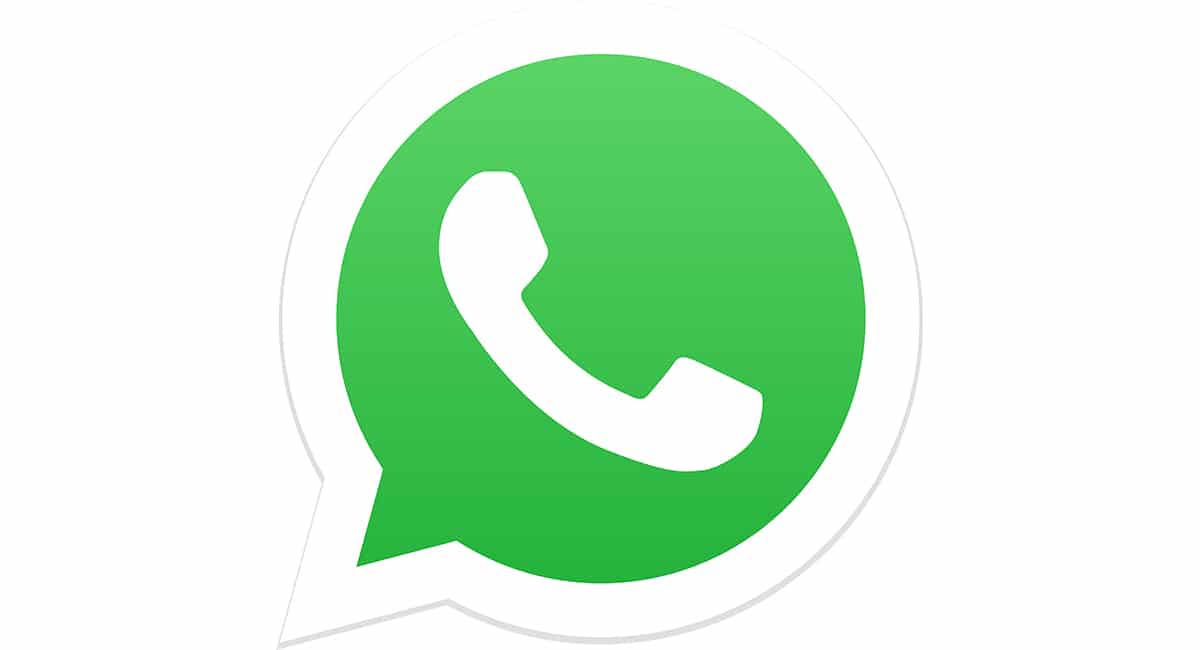
Due to the large number of data that WhatsApp collects, I am going to list them in a list:
- Device Type
- Datos de uso
- Shopping
- Location
- Contact details
- User content
- Error diagnostics
- Shopping
- Financial information
- Contacts
In the description of the application that we can find from WhatsApp in the App Store, the data collection is separated according to its purposes:
- Developer advertising or marketing
- Data analysis
- Product customization
- Application functionality
- Other purposes
Data collected by Facebook Messenger
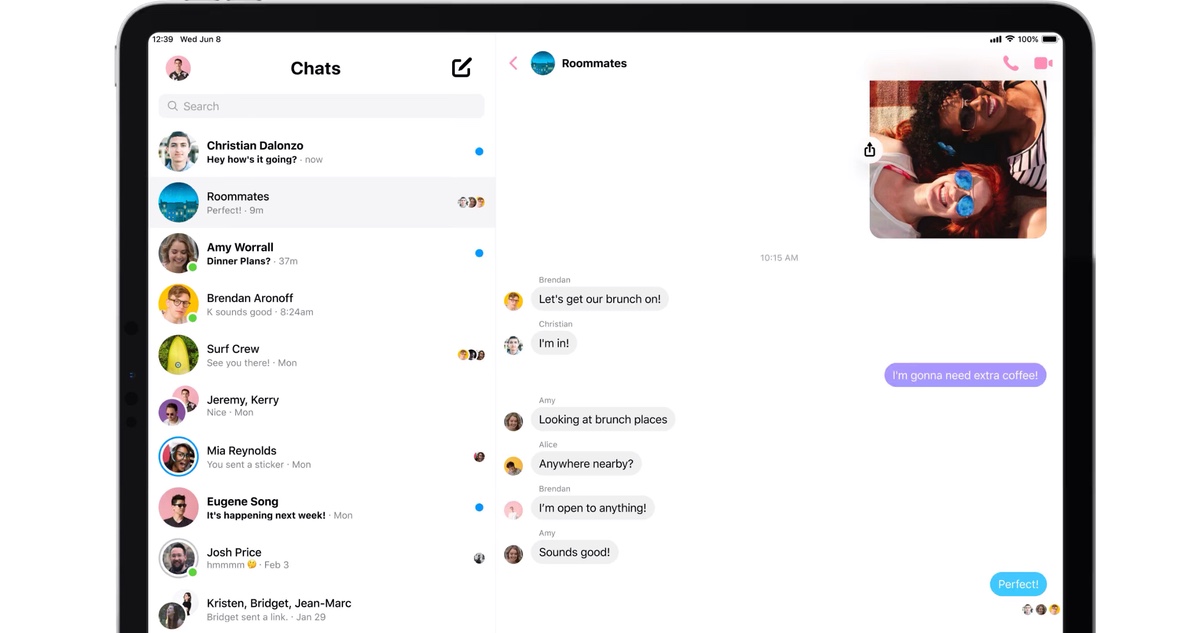
The amount of data that the Messsenger application collects, it's crazy, has no other name. In addition to collecting the same data as WhatsApp and classifying it according to its purpose, it also collects:
- Search history
- Browsing history
- Health and fitness
- Sensitive data


